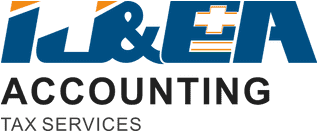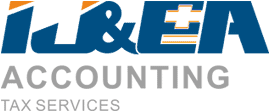Navigating the Complexities of Healthcare Finance
In today’s rapidly evolving healthcare landscape, doctors face increasing complexity when it comes to their financial matters. Like any other professionals, they need to consider the intricacies of taxation and navigate the challenges of running a business. To effectively manage their finances and optimise their earnings, doctors can greatly benefit from expert business and tax advisory services tailored to their unique needs.
Understanding the Complexity of Taxation for Doctors
Doctors operate within a distinct tax environment that requires careful consideration of various income sources, including private practice revenue and hospital affiliation fees. Moreover, they must account for significant business expenses and investments. Given these complexities, doctors often require specialised tax expertise to ensure compliance and maximise their financial well-being.
Business Advisory and its Importance for Doctors
In addition to the intricacies of taxation, doctors also face business-related challenges that demand strategic thinking. Setting up a private practice, managing its operations efficiently, and even considering expansion opportunities all require careful planning and execution. By seeking expert business advice, doctors can gain valuable insights and guidance to navigate these challenges successfully.
Key Areas of Business and Tax Advisory
Let’s explore the key areas where doctors can benefit from business and tax advisory services:
Tax Planning and Strategies for Doctors
Tax planning is crucial for doctors to optimise their earnings and minimise their tax liability. By implementing effective strategies such as choosing the right business structure, considering taxable income, leveraging tax credits and deductions, and managing business expenses prudently, doctors can significantly impact their overall financial health.
A knowledgeable tax advisor with expertise can help doctors navigate the complex tax regulations specific to their profession. They can assist in determining the most advantageous business structure. Each structure has different tax implications and legal requirements, and choosing the right one can lead to substantial tax savings.
Furthermore, tax advisors can help doctors identify tax deductions that they may be eligible for, such as expenses related to continuing medical education and lodging tax return. By maximising these opportunities, doctors can reduce their tax burden while investing more in their practices and professional development.
Financial Management for Healthcare Professionals
Financial management encompasses more than just tax planning. It involves managing cash flow, budgeting, and safeguarding wealth for the future.
Cash flow management and budgeting are crucial aspects of financial management for doctors. Private practice revenue can fluctuate, making it essential to have a well-structured budget that accounts for both fixed and variable expenses.
A tax adviser can also work with a financial advisor or financial planner to take into account your financial plans or financial advice, such as financial goals, personal finance, personal financial products, financial situation, super fund, life insurance, family members, stage of life and good estate plan.
Practice Management and Operational Efficiency
Running a private practice is akin to managing a small business. It involves various aspects such as staff management, patient scheduling, billing and collections, and optimising operational efficiency. By working with an expert advisor, doctors can streamline their practice’s operations, enhance patient satisfaction, and improve profitability.
Retirement Planning and Wealth Management
Doctors must plan for their financial future beyond their active professional years. Retirement planning, estate planning, and wealth management are vital considerations to ensure a comfortable life after retirement. With the guidance of a knowledgeable advisor, doctors can make informed decisions to safeguard their financial well-being.
Business Structures and Incorporation for Doctors
Choosing the appropriate business structure for a private practice can have significant tax implications. An advisor specialising in healthcare finance can help doctors understand the benefits and drawbacks of different structures, guiding them toward the most advantageous choice.
For instance, a sole trader may be a straightforward option for a doctor to start a small practice. However, it offers little liability protection. On the other hand, forming a company can provide personal asset protection and potential tax advantages. Advisors can explain the legal and tax implications of each structure, allowing doctors to make an informed decision that aligns with their goals and risk tolerance.
How to Choose the Right Business and Tax Advisor
Finding a competent and trustworthy advisor is critical for doctors. Consider the following factors when selecting a business and tax advisor:
Experience and Specialisation
Choose an advisor with extensive experience and specialised knowledge in the medical industry. They should have a proven track record of working with medical professionals and understanding the unique challenges they face. Their expertise ensures that the advice provided is tailored to the specific needs of doctors in the ever-evolving healthcare industry.
Accessibility and Communication
Given doctors’ demanding schedules, it is crucial to select an advisor who is easily accessible and maintains clear communication channels. Prompt and responsive communication ensures that doctors can address their financial concerns efficiently.
Consider the advisor’s availability for meetings and consultations. Are they flexible with scheduling appointments? Can they accommodate virtual meetings if necessary? Accessibility and effective communication are key to a productive and successful advisory relationship.
Transparency and Trustworthiness
Look for an advisor who maintains transparency in their dealings and has a reputation for trustworthiness. Doctors need to feel confident that their financial affairs are handled ethically and with their best interests in mind.
Conclusion
Navigating the complexities of business and taxation in the healthcare industry is challenging for doctors. However, with the support of a trusted business and tax advisor and potentially separate financial advisers, doctors can emphasise providing quality patient care while ensuring their financial health. By leveraging specialised expertise and tailored guidance, doctors can optimise their earnings, manage their taxes efficiently, and create a secure financial future. With the right advisory services, doctors can navigate the intricacies of healthcare finance with confidence and peace of mind.












